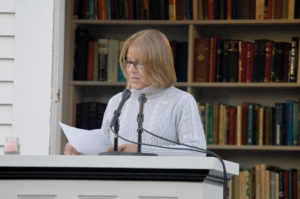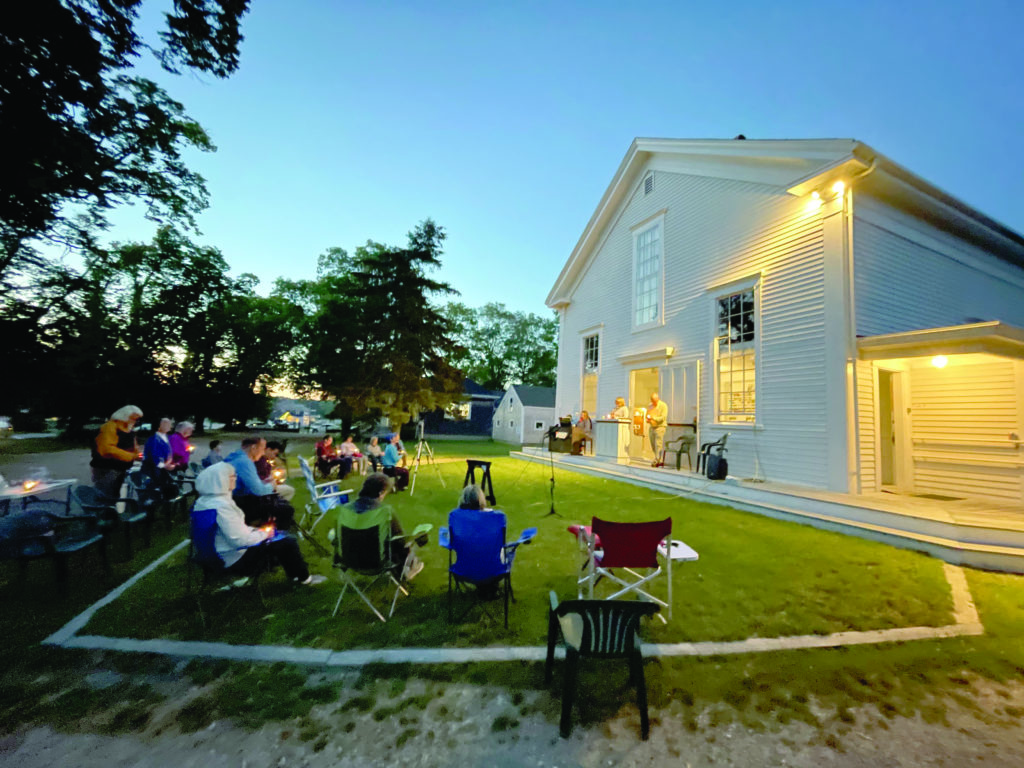This article originally appeared in the July 2021 edition of Senior Scope. Article and photos by Seth Thomas.
For 15 months, the pandemic has upended everyday life and caused boundless hardship for people the world over. Taking stock of the suffering COVID-19 has wrought will undoubtedly be an ongoing process in the years ahead. But, in Westport, in front of a small Quaker church, about 20 people began working through that grief.
A candlelight vigil honoring those lost during the pandemic was initially scheduled in May to coincide with Mental Health Awareness Month, but was rescheduled due to rain. By the time the ceremony was held on June 12 at the Friends Meeting House in Westport, America was on its way to crossing another grim milestone: 600,000 deaths from the coronavirus.

Donna Amaral helped organize the event in Westport to allow people to gather and grieve. “To heal, we need to address our own grief,” she said.
“The pandemic has caused a collective grief, but it has denied us our collective grieving,” said Donna Amaral, a clinical nurse specialist in mental health who organized the event. “This is a time to recognize and name our losses.”
Amaral hoped the event would provide an opportunity for the public to gather and grieve, something the era of social distancing made impossible. Members of the audience were invited to recount their own experiences since March 2020.
There were stories of how the pandemic caused remarkable hardship for students. One member of the audience, Susan Mitchell, discussed the enormous challenge of grieving her niece, Jada Martins, who died after being struck by a car. Her family couldn’t gather and mourn because of the restrictions on gatherings.
Dr. Ana Cojocaru gave a harrowing account of the early days of the virus. Cojocaru works as a critical care physician who volunteered to assist the frontline workers at Morton Hospital early on in the pandemic.
“What we saw there was truly unbelievable,” she said. She saw patients of all ages dying, and held back tears as she recounted a seven-year-old patient who died of complications from COVID-19.
“Patients that we lost will always stay with us,” she said. “We learned how to treat them. Every loss meant something to all of us. We celebrated when we saved a life, but also grieved and cried for each one of our patients.”
She realized the only way we would ever overcome the virus would be through kindness and supporting one another.
“We have to embrace the knowledge we accumulated and look forward to better times,” she concluded.



Recent Comments